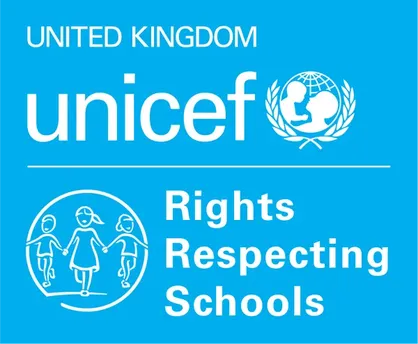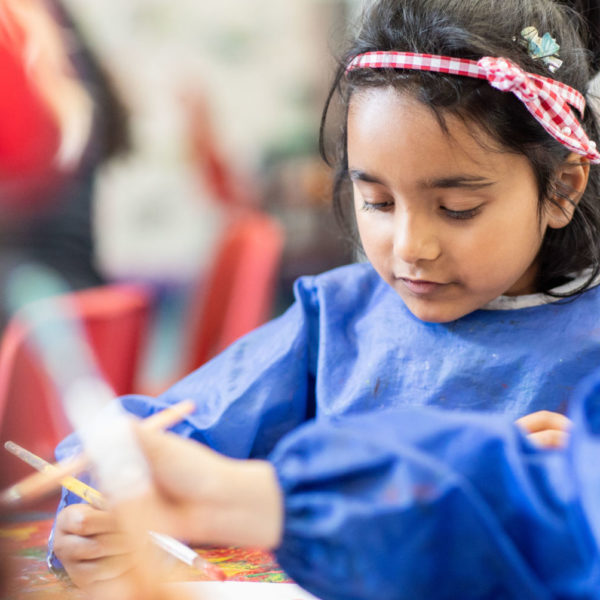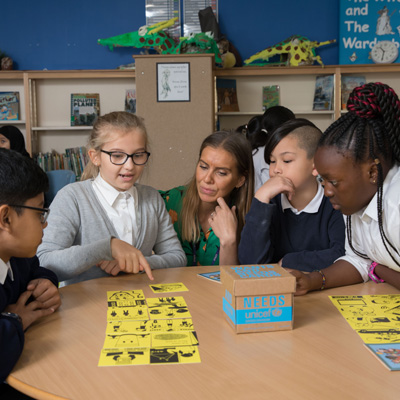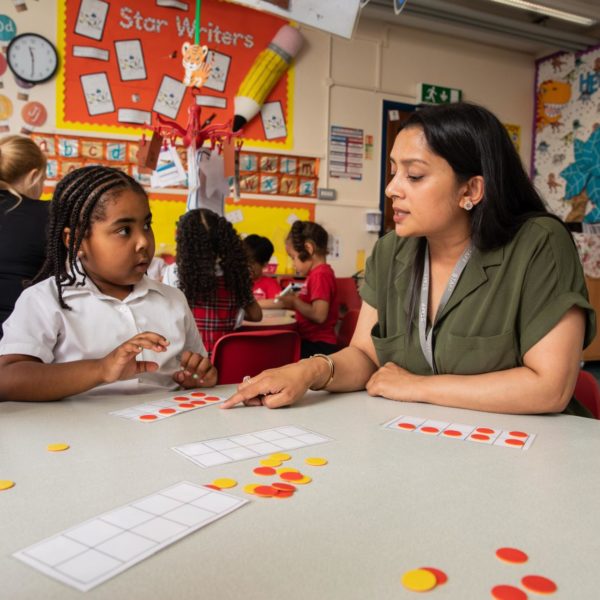RRSA coordinator, Alice Jarvis, from Felpham Community College in West Sussex, has gone from being a student within this Gold Rights Respecting School to studying human rights at university, before becoming a teacher and returning to lead the school’s work on child rights education.
Tell us a bit about yourself. How long have you been a teacher? What do you enjoy most about teaching? How long has your school been involved with UNICEF UK?
Felpham became involved with the Rights Respecting Schools Award around 2015, when I was a student studying at the school. The school’s commitment to RRSA meant that there was a large focus placed on charity and social action. I ran the school’s charity committee, where I led fundraising events, awareness days and local community-based action, which I received an award for in my final year at the school. The focus the school placed on charity gave me my first taste of third sector work.
The positive impact from attending a Rights Respecting school shaped me and my career choice in aiming to make a positive impact on the world. This desire played a huge role in my decision to return to Felpham and take on the RRSA position. Felpham has a deep-rooted commitment to the welfare and development of its students as confirmed in its commitment to the RRSA qualification and as result focuses on developing students on a deeper level. The school aims to shape them into socially conscious ‘active citizens’ who will go on to create change in the wider world.
What led your school to become involved in the Rights Respecting Schools Award?
At Felpham we believe that it is our duty to provide students with the skills and knowledge needed within life, to make them ready to be successful and have a positive impact in the future. By engaging with RRSA the school can give students both an awareness of everyone’s rights and at the same time provide them with a social awareness of these real world issues. In doing this the school hoped that they would enable their students to become global citizens and go on to make a positive impact on the world beyond their time at school. The fact that the school has a number of alumni, like myself, for whom their engagement with RRSA at school inspired them to engaged with the global citizenship and rights agenda after they left secondary education, has encouraged us to stay involved with RRSA ever since.
Give us an example of an initiative or an activity that your school has done that pushed the working you are doing with RRSA forward?
When I was at school, I thought my options would be limited by my dyslexia and anxiety, however finding my place in charity and RRSA work gave me confidence and the realisation that my life is not limited by those things. In my role as RRSA Coordinator I want give students a similar experience, showing that anyone can get involved in social action and it can be carried out in several ways. I have worked hard to ensure that RRSA is delivered to all students and includes those who may not traditionally get involved or have the loudest voice, for example by running workshops specifically designed for SEN students.
What challenges have you faced in putting the Award in place your school and how did you overcome them?
The effect of the pandemic was to refocus and raise awareness of the human rights issues that are happening across the globe, with attention being draw domestically to issues of poverty, food insecurity and issues with health care. This experience created a stronger sense of community and global responsibility, which has meant that our students have an increased desire to create change fueling their passion for our RRSA work.
Similarly, our role as an RRSA school shaped our response towards the pandemic. We knew we needed to support students beyond their educational needs and provide support for all the difficulties they may have been facing at that time. For example, we worked to provide safe places for vulnerable students, providing laptops and educational packs and delivering support for mental health. This has been carried on beyond the pandemic with the creation of Resilience Ambassadors working to help students to re-adjust to post-Covid life.
What has been your proudest achievement in putting children’s rights in to practice in your school?
One of my proudest achievements while working is engaging with students who are often excluded or left out within traditional schooling. I work closely with students with special educational or health care needs and those struggling with their mental health. What taking on the RRSA position has allowed me to do is ensure that these students – who are often too scared or don’t want to engage with school, let alone extra activities – have a role and voice in this work.
It has been lovely to watch the impact and the amazing work these students have achieved across the school and the personal development they have gained. I am really excited to see the impact they will have on the world, as by engaging with human rights and Rights Respecting Schools lots of our students have developed a passion and confidence to protect both their own rights and the rights of others. I am sure that they will continue to do this well beyond their time at Felpham.
What makes this work so important to me is how it has positively impacted so many students lives, taking students who previously ‘hated school’ to feeling part of the school community.
What advice would you give to other schools working towards Gold?
Look for a variety of ways to engage young people. This should include assemblies and embedding rights within their learning but also creative ways of encouraging students to take tangible actions. It is really important that schools use this opportunity to not only teach young people about human rights but to also show young people the power and impact they can have, working to showcase the impact everyone can have which in turn creates a long-lasting impact for students beyond their time with us.






